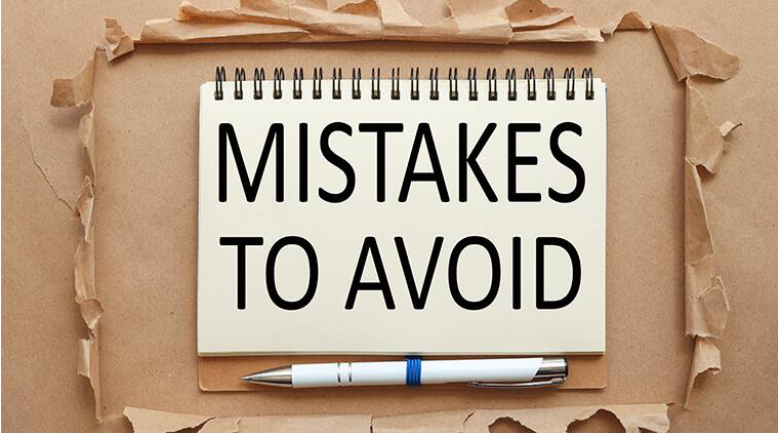Top Mistakes to Avoid When Buying Insurance
Buying insurance is one of the smartest financial moves you can make but it’s also easy to get it wrong. Whether you’re choosing life, health, home, or auto insurance, making the wrong decision can leave you underprotected or paying more than necessary.
In this post, we’ll walk you through the top mistakes people make when buying insurance and more importantly, how to avoid them.
1. Focusing Only on the Cheapest Premium
The Mistake: Many people are tempted to buy the cheapest policy to save money. While affordability matters, going too cheap can mean minimal coverage or high out-of-pocket costs when you make a claim.
What to Do Instead:
Compare policies based on value, not just price. Look at:
-
Coverage limits
-
Deductibles
-
Exclusions
-
Claim support and benefits
Remember: A low premium might cost more in the long run if you’re poorly covered.
2. Not Understanding What’s Covered (or Excluded)
The Mistake: Skipping the fine print and assuming you’re covered for everything can lead to nasty surprises.
What to Do Instead:
Always read the policy exclusions and limitations. For example:
-
Health insurance may not cover dental or vision.
-
Home insurance may exclude flood or earthquake damage.
-
Life insurance might not pay out for suicide within the first two years.
✔️ Ask questions and clarify terms you don’t understand.
3. Underinsuring Yourself
The Mistake: To save on premiums, some people opt for lower coverage limits—only to discover it’s not enough during a claim.
What to Do Instead:
Assess your actual needs:
-
For life insurance, consider debts, income replacement, and future expenses.
-
For home insurance, calculate rebuilding costs—not just the market value.
-
For car insurance, factor in the cost of medical expenses and third-party damages.
Use online calculators or talk to a licensed advisor for guidance.
4. Overinsuring or Duplicating Coverage
The Mistake: On the flip side, some people end up paying for more insurance than they need—or buy duplicate coverage across multiple policies.
What to Do Instead:
Review your existing policies. For instance:
-
Your employer may already provide basic life or health insurance.
-
Credit cards might include travel or rental car insurance.
Get what you need, not what you already have.
5. Not Disclosing Important Information
The Mistake: Hiding pre-existing conditions or past claims can lead to claim denial or policy cancellation.
What to Do Instead:
Always provide honest and complete information on your application. Insurance companies verify your details during underwriting or claims processing.
Transparency ensures smooth claim settlement and long-term protection.
6. Skipping the Comparison Process
The Mistake: Buying the first policy you see or sticking with the same insurer for years without reviewing options.
What to Do Instead:
Use insurance comparison tools or work with a broker who can present multiple quotes. Comparing helps you:
-
Find better deals
-
Access more coverage options
-
Discover useful add-ons
Even a small annual review can lead to big savings and better coverage.
7. Ignoring Policy Riders and Add-Ons
The Mistake: Missing out on riders that could enhance your policy, like critical illness, accidental death, or maternity coverage.
What to Do Instead:
Ask your insurer about optional riders that match your lifestyle or health situation. They’re usually affordable and highly beneficial.
Example: A “waiver of premium” rider for life insurance ensures your policy remains active if you become disabled and can’t pay.
8. Not Reviewing Your Policy Regularly
The Mistake: Buying a policy and forgetting about it even when your life circumstances change.
What to Do Instead:
Review your insurance:
-
Annually
-
After major life events (marriage, childbirth, job change, home purchase)
Keep your policy updated to reflect your current needs and goals.
9. Delaying Buying Insurance
The Mistake: Waiting until you’re older, sicker, or “more settled” before buying insurance—especially life or health.
What to Do Instead:
Buy early. You’ll benefit from:
-
Lower premiums
-
Better coverage options
-
Peace of mind sooner
The best time to get insurance is before you need it.
10. Not Asking Questions
The Mistake: Feeling embarrassed or overwhelmed and failing to ask your insurer to explain things clearly.
What to Do Instead:
Be proactive. No question is too small when your money and security are on the line. Ask about:
-
Claim procedures
-
Waiting periods
-
Renewal terms
-
Grace periods for missed payments
✅ Informed buyers make better choices.
✅ Final Thoughts
Buying insurance shouldn’t be confusing or stressful it should be empowering. Avoiding these common mistakes can save you time, money, and headaches while ensuring you and your loved ones are properly protected.


